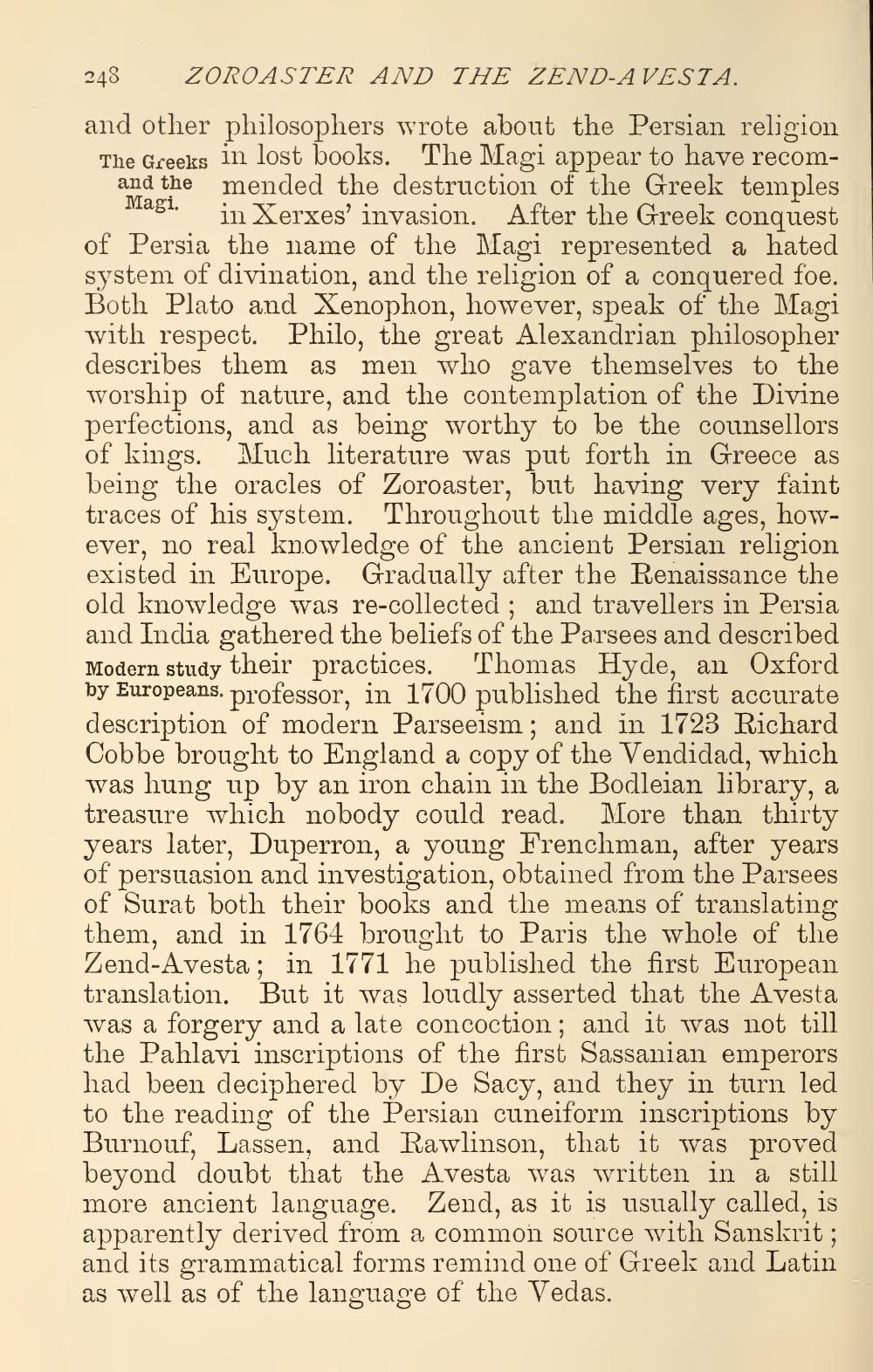________________
248 ZOROASTER AND THE ZEND-AVESTA. and other philosophers wrote about the Persian religion The Greeks in lost books. The Magi appear to have recomand the mended the destruction of the Greek temples
magl. in Xerxes' invasion. After the Greek conquest of Persia the name of the Magi represented a hated system of divination, and the religion of a conquered foe. Both Plato and Xenophon, however, speak of the Magi with respect. Philo, the great Alexandrian philosopher describes them as men who gave themselves to the worship of nature, and the contemplation of the Divine perfections, and as being worthy to be the counsellors of kings. Much literature was put forth in Greece as being the oracles of Zoroaster, but having very faint traces of his system. Throughout the middle ages, however, no real knowledge of the ancient Persian religion existed in Europe. Gradually after the Renaissance the old knowledge was re-collected; and travellers in Persia and India gathered the beliefs of the Parsees and described Modern study their practices. Thomas Hyde, an Oxford by Europeans. professor, in 1700 published the first accurate description of modern Parseeism; and in 1723 Richard Cobbe brought to England a copy of the Vendidad, which was hung up by an iron chain in the Bodleian library, a treasure which nobody could read. More than thirty years later, Duperron, a young Frenchman, after years of persuasion and investigation, obtained from the Parsees of Surat both their books and the means of translating them, and in 1764 brought to Paris the whole of the Zend-Avesta; in 1771 he published the first European translation. But it was loudly asserted that the Avesta was a forgery and a late concoction; and it was not till the Pahlavi inscriptions of the first Sassanian emperors had been deciphered by De Sacy, and they in turn led to the reading of the Persian cuneiform inscriptions by Burnouf, Lassen, and Rawlinson, that it was proved beyond doubt that the Avesta was written in a still more ancient language. Zend, as it is usually called, is apparently derived from a common source with Sanskrit ; and its grammatical forms remind one of Greek and Latin as well as of the language of the Vedas.




